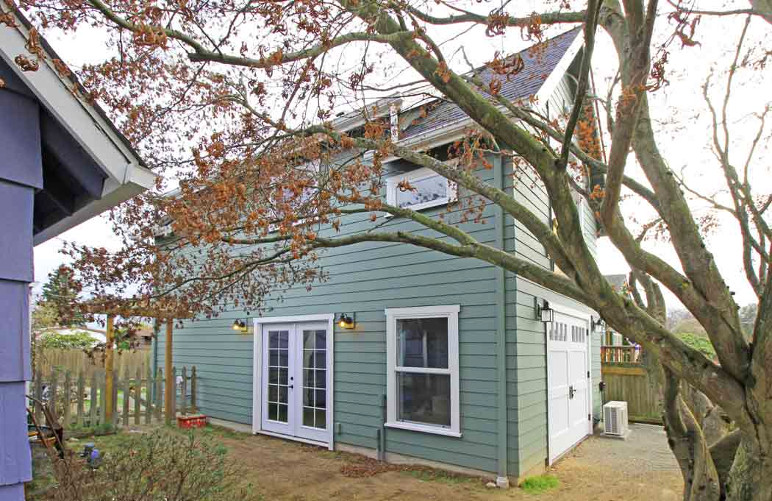This morning, Washington House Representatives Mia Gregerson (D-SeaTac) and Andrew Barkis (R-Olympia) introduced the most progressive accessory dwelling unit (ADU) bill legislators from any state have ever had the opportunity to vote on. For Washington cities of 2,500 people or more, and within urban growth areas, the bill would:
- Permit two ADUs per lot wherever there is a single-family home, duplex, triplex, or townhome
- Eliminate off-street parking, owner-occupancy, and minimum lot size requirements
- Cap impact fees at 50 percent of those for single-family homes
- Set utility connection fees and capacity charges in proportion to the ADU’s burden on the utility system
- Increase design flexibility via more generous setback, height, and size limits
Though legislators in California and Oregon have updated their state’s ADU policies over the last three years, neither state has passed reform as comprehensive and impactful as this could be. What’s more, the bill has strong bipartisan support, reinforcing that Washingtonians of all stripes are eager for this common sense housing type.
In 1993, Washington re-legalized ADUs—including basement apartments, backyard cottages, and mother-in-law suites—in the state’s largest cities. The rule change, however, didn’t prevent cities from enacting piles of restrictions and fees that can deter homeowners from constructing these small homes. And many cities did just that—perhaps unintentionally, or perhaps goaded by small but well-resourced neighborhood groups. Over the past 25 years onerous regulatory barriers have kept ADU construction to a crawl in most of the state’s cities. Even in Seattle only about two percent of the lots in the city’s single-family zones have an ADU.
The lack of ADUs in Washington belies residents’ desire for them. Washington cities that have cut red tape have seen ADU permit applications spike. Take Bellingham, for example. In 2018 the city legalized backyard cottages and reduced off-street parking requirements and impact fees. Within six months, the city saw more than three times as many ADU permit applications than in previous years.
Likewise, California’s largest cities have seen tremendous growth in ADU permit applications since the legislature passed its major ADU reform bill in 2016, which eased the permitting processes for one ADU on lots with single-family homes, reduced off-street parking requirements, and lifted several other key barriers to ADU construction. Portland has also witnessed tremendous growth in annual ADU permit applications since lifting several construction restrictions. In particular, the city saw a nearly four fold increase in permit applications after waiving system development charges on ADUs in 2010.
Rep. Gregerson’s bill is designed to help catalyze a similar boost in housing choices throughout Washington by making it easier for homeowners to build ADUs.
Some of the proposals may evolve in response to feedback from stakeholders as the bill makes its way toward the Governor’s desk. But as it stands now, the bill is a model for ADU reform. If legislators can pass it more or less in its current form, it will give homeowners all the flexibility they deserve to build ADUs if they so choose. And it will set a new bar in Cascadia and beyond for state-level action to increase housing options.


Comments are closed.